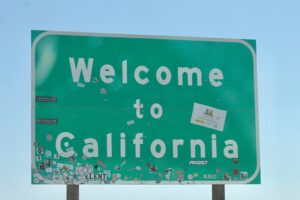Similar to New Jersey’s Daniel’s Law (“NJ Daniel’s Law”), Pennsylvania House Representatives recently passed a bill (“PA Daniel’s Law” or the “Bill”) aimed at protecting certain public officials. Much like NJ Daniel’s Law, the proposed PA Daniel’s Law seeks to prevent data brokers from disseminating the personal information of judges and other public officials, as defined by Pennsylvania State law. Below, we discuss PA Daniel’s Law in detail and highlight some of the key differences between PA Daniel’s Law and NJ Daniel’s Law.
Discussion of PA Daniel’s Law
Similar Daniel’s Laws have been enacted across the country, and Pennsylvania’s proposed Daniel’s Law bill largely adopts the same approach other states have taken to protect those in public service. As initially introduced, the PA Daniel’s Law bill prohibited the “disclosure by a data broker of protected information” of covered persons; and data brokers were required, upon receipt of written notice from covered persons or their authorized agents, to cease disclosing the protected information within 10 business days of receipt (“Nondisclosure Requests”). While in the House, PA Daniel’s Law was recently amended to provide data brokers with 20 business days to comply with Nondisclosure Requests and to remove criminal penalties for non-compliance. As amended, violations of PA’s Daniel’s Law allow covered persons to bring private actions to recover: (1) actual damages or $1,000 per violation, whichever is greater; (2) punitive damages, if the subject violations are deemed willful or reckless; and (3) reasonable attorneys’ fees and costs.
Distinctions Between PA Daniel’s Law and NJ Daniel’s Law
PA Daniel’s Law differs from NJ Daniel’s Law in at least four meaningful ways: (1) the Bill provides 20 business days to comply with Nondisclosure Requests (NJ Daniel’s Law only provides 10 business days); (2) in addition to home addresses and telephone numbers, protected information under PA Daniel’s Law includes personal e-mail addresses, social security numbers, driver’s license numbers, and the license plate numbers or other unique identifiers of vehicles owned, leased, or regularly used by covered persons (NJ Daniel’s Law only prohibits disclosure of covered persons’ home addresses and home telephone numbers); (3) the Bill only applies to “data brokers,” as defined under PA Daniel’s Law (NJ Daniel’s Law applies to all persons and companies); and (4) PA Daniel’s Law defines covered person (or “principal person” as referred to in the Bill) more narrowly than NJ Daniel’s Law.
PA Daniel’s Law barely passed in the House, and notably, it did not have Republican support. As such, it remains to be seen if PA Daniel’s Law ultimately becomes law. Many states have regulations similar to that of PA Daniel’s Law and NJ Daniel’s Law, which permit private rights of action. Often these Daniel’s Law lawsuits are filed as class actions, which can result in substantial liability.
The attorneys at Klein Moynihan Turco (“KMT”) have been at the forefront in considering Daniel’s Law claims targeting companies in the consumer data marketing space. KMT regularly advises clients on compliance with Daniel’s Law and various other state and federal privacy laws.
If you need assistance with defending a Daniel’s Law lawsuit, please e-mail us at info@kleinmoynihan.com, or call us at (212) 246-0900.
The material contained herein is provided for informational purposes only and is not legal advice nor is it a substitute for seeking legal advice from an attorney. Each situation is unique, and you should not act or rely on any information contained herein without seeking the advice of an experienced attorney.
Attorney Advertising
Photo by Wesley Tingey on Unsplash
Similar Blog Posts:





